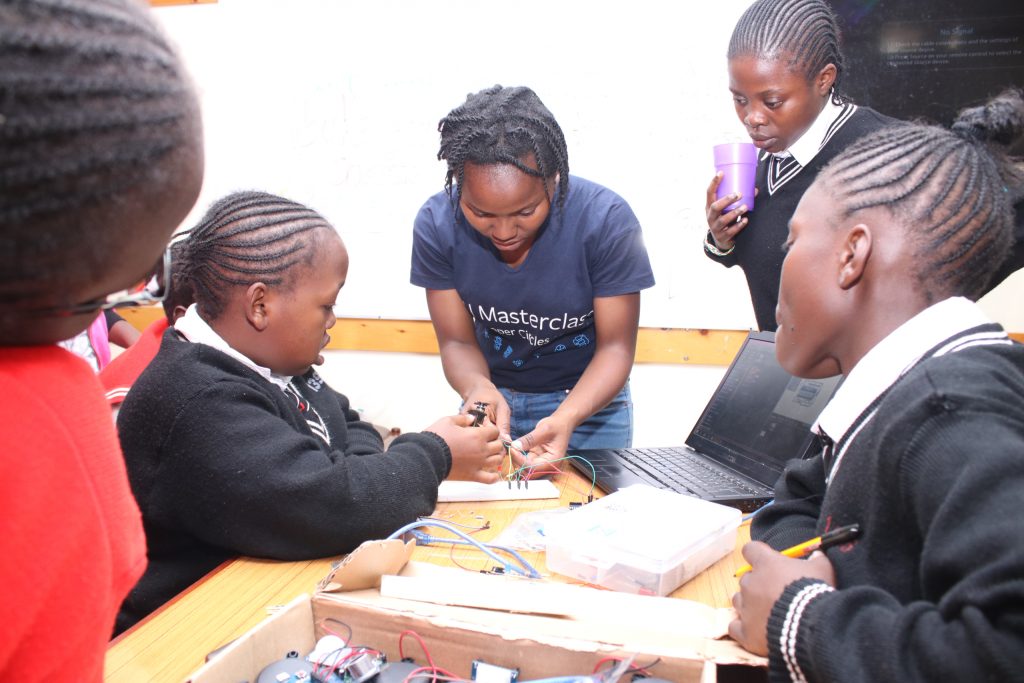Why We Should All Be Digital Rights Advocates – Entrepreneurs Edition
Since 2014 iHub Research has been supporting the uptake of digital tools and platforms for purposes of community organising and accessing opportunities and resources online by citizens around Kenya. Through our research it has been evident that there exists not only a gap, but a widening gap as countries become more digitally reliant. Kenya’s internet penetration currently stands just above the 20% threshold according to a recent report by Research ICT Africa. This means almost 80% of Kenyans do not benefit from being online. In our evolving research we have had the opportunity to work closely with counties, namely: Nakuru, Kisumu, Uasin Gishu and Mombasa. Collaborating with youth groups and community based organisations in these counties has exposed us to the actual lived reality, rather than the utopian narrative that is commonly propagated.
Kenyans are still struggling to connect to the internet due to three main reasons: digital literacy, cost of access and devices as well as infrastructural challenges. During this phase of our digital literacy program with support from SIDA, iHub has supported the establishment of communities of practice in Uasin Gishu, Kisumu and Mombasa county. This was aimed at supporting a larger percentage of Kenyans in these regions use ICTs for community organising and for personal benefits ranging from employment, education and socialising.
Kenyans are still struggling to get online, so what’s next? This edition of #InternetPizzaFriday focused on the role of entrepreneurs in bridging this widening digital gap; do entrepreneurs have a responsibility? Several businesses today rely on digital platforms in order to offer their products or services to their customers, the same platforms that Kenyans are struggling to access affordably, conveniently or even at all.
How can entrepreneurs get involved in bridging the widening digital gap?
It goes without saying that as more Kenyans get online, the bigger the market share digital businesses, will potentially be able to access for their products or services.
The solution is then simple, tech entrepreneurs need to be actively involved in decreasing barriers to access such as cost, technology, devices, complexity of platforms.
Below are a number of practical ways that tech entrepreneurs can be actively involved:
Mobile friendly and simpler platforms
Majority of Kenyans access the internet via mobile which provides a different quality of access as compared to access via personal computer; it’s thus important to note that ‘not all access is equal’. By developing platforms, products and services that can be accessed via mobile and sites that do not require large amounts of data to access, tech entrepreneurs can effectively decrease barriers to access.
Policy Discussions
Often we may think contributing to policy discussions is something that should be left to civil society organisations and governments, however this is an inaccurate assumption. By participating in policy debates, tech entrepreneurs bring the expertise of understanding a customers experience in accessing their products and services which is vital in creating a ‘friendly’ digital environment for both entrepreneurs and customers. A multi-stakeholder approach is vital for any policy creation process, which eventually results in a thriving business environment. We need more tech entrepreneurs participating in the development of digital policy. These conversations often happen in unstructured forms e.g. on Social Media or in more structured forms such as on platforms like KICTANet.
Social Media
With over 12 millions Kenyans on Whatsapp and over 8 million on Facebook, how are tech enterprises transforming their customer service dynamics to take advantage of this reach? By meeting Kenyans on the platforms where they are already actively having conversations, without requiring them to send emails, access company websites and other options that are data heavy, tech enterprises effectively improve access to their product offerings.
Digital Literacy.
Years later, digital literacy is still a buzzword, basically because it is still a challenge that plagues a majority of the population. Across the world there exists different forms and techniques of digital literacy programs, but how should entrepreneurs approach digital literacy? Does your enterprise go beyond explaining the step by step process of accessing your offering? Do you have a Frequently Asked Question resource? Do you give your customers tips on how to access your platform in the cheapest and convenient way? Do you have a customer service team that hand holds your customers as they access your offering? These are just some questions you can consider as you develop your product offering.
The journey of bridging the widening digital gap needs all hands on deck, and entrepreneurs should not be left behind this call.
Find here the link to the #InternetPizzaFriday presentation.
